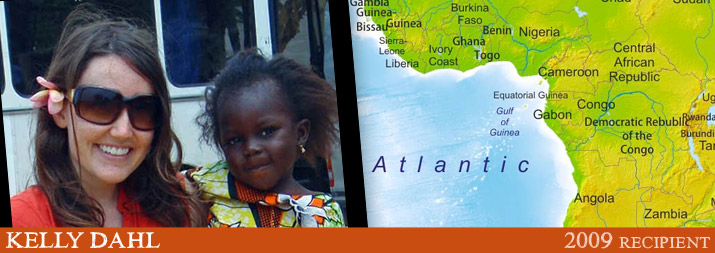Stephanie Borden received a Masters in Public Health degree from UC Berkeley. Stephanie was awarded $1000 from Sara’s Wish Foundation in support of her work on a field study in the area of family planning in Benin, Nigeria in 2006.
Here are Stephanie’s travel safety tips:
While in Nigeria, many of the people I met described their country as “rugged.” After 3 moths of living and working there, I came to understand what they meant. I spent the majority of my time in Lagos and Benin City. Based on these two cities I found Nigeria to be fast-paced. There are few (hardly any in Benin City) stop signs or stop signs and traffic is congested much of the time during the day.
The safest way to travel is by taxi. They are relatively inexpensive and will take you exactly where you need to go. Another option is the bus. They are generally full, especially if you are traveling in the morning or late afternoon. However, unlike other places I have been, everyone has a seat so you will not be forced to stand up. Although it is very likely that you will find yourself sandwiched with four others in a seat made for three. Be sure you know the final destination of the bus before you board and try to find out the correct price ahead of time. There are also commercial motorbikes, but these can be quite dangerous depending on the driver. I will pass on the advice given to me: “Do not ride the motorbikes.” However, I had to take one once because nothing else was available. If you find yourself in a similar situation be sure to communicate with your driver. They are extremely receptive. If you ask them to slow down they will respect your wishes. When traveling between cities, avoid traveling at night. I was told repeatedly that this is not a good idea and most locals prefer daytime travel. If you have the option of taking the “Edegbe Line,” take it. These buses are well maintained, regarded as safe, and for a little extra you can get air-conditioning.
As long as you use good judgment you will be fine traveling in Nigeria. Do not do anything you feel uncomfortable with and be aware of your surroundings… SAFE TRAVELS!

